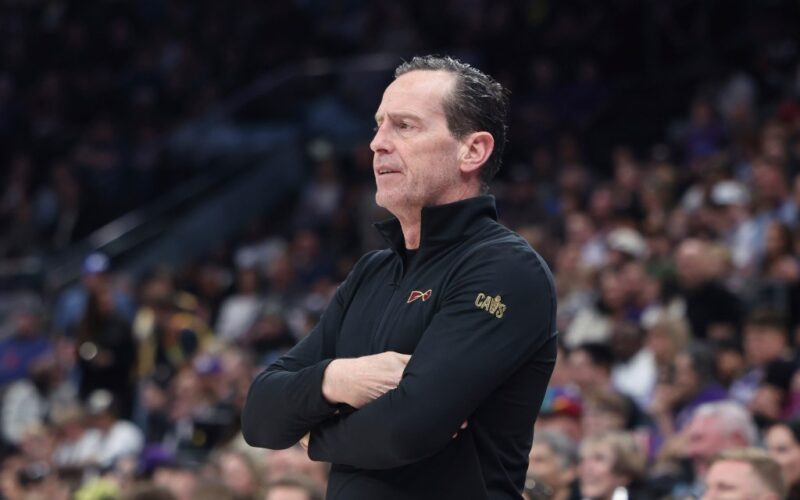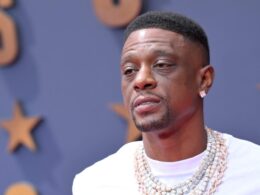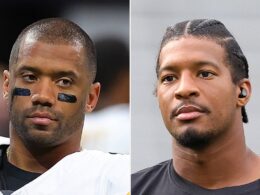Who says a development-first coach can’t lead a team to an NBA title?
That was the label placed squarely on Kenny Atkinson, the former Brooklyn Nets head coach ousted at the dawn of the Kevin Durant and Kyrie Irving era at Barclays Center. After Atkinson transformed raw talents like D’Angelo Russell, Spencer Dinwiddie, Jarrett Allen, Caris LeVert, and Joe Harris into legitimate NBA contributors, Brooklyn shifted gears. Durant and Irving arrived in the blockbuster “Clean Sweep” of 2019, and Atkinson was soon out the door, replaced by the star-approved Steve Nash.
The reasoning at the time? Development was nice, but the Nets’ brass — and their newly acquired superstars — didn’t envision Atkinson as the voice to command a championship-caliber roster.
Yet here Atkinson stands now, several years after “mutually parting ways” with Brooklyn. This time around, he’s proving that development and championship aspirations aren’t mutually exclusive. With the Cavaliers atop the Eastern Conference and poised for a deep playoff run, Atkinson has found the perfect balance between player growth and playoff readiness.
Speaking before tipoff against the Knicks at Madison Square Garden, the Cavaliers coach reflected on his evolution since his Brooklyn tenure.
“The short answer is I’m a much better coach now,” Atkinson said. “Development is what I leaned on heavily in Brooklyn, and I felt comfortable with that. But back then, I wasn’t presented with situations like deep playoff runs or conference finals. Hopefully, I get to that stage with this group.
“You always want to graduate. Like a player, you ask yourself, ‘What’s the next step? How can I get better? How can I expand my game?’”
Atkinson’s path reflects that growth. When he joined the Nets in 2016, the team improved steadily each year: 20 wins in Year 1, 28 in Year 2, and then a dramatic leap to 42 wins and a playoff appearance in Year 3, snapping a three-year postseason drought. After adding Durant (who sat out his first Brooklyn season recovering from a ruptured Achilles) and Irving, the Nets abruptly parted ways with Atkinson just 62 games into the next season, as his voice seemingly lost resonance in a star-driven locker room.
But Atkinson isn’t the same coach the Nets let go.
“I’ve definitely shifted my mindset,” he said candidly. “In Brooklyn, I was more focused on development. Here in Cleveland, I’ve balanced that with greater emphasis on strategy, end-of-game situations, and understanding exactly where our team is in its evolution.”
But old habits — particularly those rooted in his passion — die hard.
“I never want to lose that identity,” he added. “I still get on the court. I’m still heavily involved in player development. But there’s definitely been a shift here because of the team we have.”
After Brooklyn, Atkinson joined Tyronn Lue’s coaching staff with the Los Angeles Clippers for a season before spending three fruitful years under Steve Kerr at Golden State, playing a pivotal role in the Warriors’ 2022 championship run.
Cleveland hired him last offseason after parting ways with J.B. Bickerstaff. In his debut season, Atkinson has already guided the Cavaliers to their second-highest win total in franchise history, trailing only Mike Brown’s 66-win 2009 campaign with an MVP-caliber LeBron James.
Atkinson’s influence is evident in the leap Evan Mobley, the No. 3 pick of the 2021 NBA Draft, has made. Mobley has blossomed under Atkinson’s guidance, emerging as a leading Defensive Player of the Year candidate and centerpiece for Cleveland’s future.
For Atkinson, the term “development coach” is no longer limiting — it’s empowering.
“All these coaches are development coaches,” Atkinson insisted. “[Miami Heat coach Erik] Spoelstra is a great development coach. [Knicks head coach Tom Thibodeau] is a great development coach. Isn’t that just coaching? A huge part of our job is getting guys to improve. Rick Pitino might be the best development coach ever, but now we just call him a great coach. The great ones are always in that bucket, too.”
Now, with the playoffs looming and championship expectations attached, Atkinson gets his chance to prove that the coach who developed teams and the coach who can win at the highest level were never separate at all — just different stages in his own evolution.








